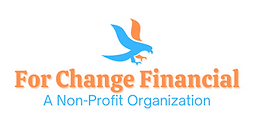
Your credit score is a valuable tool that lenders use to determine whether or not you're likely to repay your debts. If you have a good credit score, you'll be able to get loans at lower interest rates and save money over time. However, if your score is bad, getting approved for loans or other types of financing can be difficult. To make sure you don't forget anything important in the pursuit of financial responsibility, we've put together this list of eight things every person should know about protecting their credit:
1. Paying your bills on time is one of the most important things you can do to protect your credit score. If you don't pay a bill when it's due, it will likely be sent to a collection agency and reported to the credit bureaus. This can sometimes lower your score by as much as 100 points.
If this happens because of circumstances beyond your control--such as losing a job or medical emergency--talk to creditors about setting up payment plans or lowering interest rates so that they don't send your accounts into collections in the first place.
2. Keeping a low balance on your credit cards is the single most important thing you can do to protect your credit score. When you carry a balance on one or more cards, you're likely to pay interest that will increase the amount of money you owe and may even cause you to max out some of those cards. Plus, if the bank thinks that there's a chance that they won't be able to collect all their money from you (because of bankruptcy or other reasons), they may deny future loans or credit requests from them altogether.
Keeping balances low helps prove that you are responsible with money and reduces the risk associated with lending it out--and that sort of thing matters when lenders are deciding whether or not they want their money back!
3. Don't apply for too many credit cards or lines of credit. If you have a poor credit score and are looking to improve it, don't try to do so by applying for new accounts. A better idea would be to pay down debts that have been outstanding for a long time, as this will help raise your utilization ratio (the percentage of available credit that you're using), which has an impact on your score.
You can check your credit score at any time by visiting AnnualCreditReport.com or contacting one of the three major reporting bureaus: Equifax, Experian, and TransUnion
4. Don't close unused credit accounts. Credit cards are like a safety net. You never know when you might need them, so don't close accounts you don't have to. If you close an account, ensure the balance is paid off in full and on time (this will help your credit score).
5. Check your credit reports at least once a year. This is the best way to make sure there are no errors on your report, which could hurt your score. It's also important to keep an eye on how much debt you have and what kind of rates you're getting with each card. If there's an opportunity for a better deal elsewhere, it's worth looking into--and if there isn't, then stick with what works!
You can also establish an account with a trusted credit monitoring service. As for us, we've been using Identity IQ for three years now, and it gives us a clear picture of where things stand.
Your credit score is a number that represents your financial history and future. It's based on information in your credit report, which is an account of all loans, credit cards, and other debts you've taken out.
Credit scores are used by lenders to decide whether to provide you with credit and at what interest rate. The higher your score, the better chance you have of getting approved for loans or other forms of repayment assistance such as lines of credit or mortgages if needed!
Now that you know what to do, it's time to get started! It may seem like a lot of work at first glance, but if you stick with it and make sure that all of your bills are paid on time every month then your credit score will improve over time. And remember: the best way to protect yourself from identity theft is by regularly keeping up with this process so that no one can use their information against you without being caught first by one of these agencies.
Disclosure: For Change Financial only recommends products we would use ourselves. All opinions expressed here are our own. This page may contain affiliate links and we may earn a small commission, at no extra cost to you. Read our full privacy policy on our website.

Comments